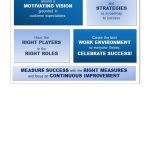Home Search
team interaction - search results
If you're not happy with the results, please do another search
Training Lessons Learned from Disney
Disney University—which is a process, not an institution—was conceived by Walt Disney himself prior to the opening of Disneyland in the 1950s. Today, every new Cast Member, from senior executives to part-time desk clerks and tour guides, is required to undergo training prior to embarking on her or his day-to-day responsibilities.
A Leadership Model that Leads to Winning Results
By applying five principles into an organization’s culture, leaders can drive results to the next level.
Training Announces 2016 Learning Design Challenge Award Winners
Learning and Development professionals showcase their best practices in eLearning.
Training Top 125 Best Practice: SFDC Rollout at Paycor
Training Paycor’s Sales and Client Service departments on Salesforce.com included daylong sessions, 30 e-learning courses, videos, team meeting visits, and “tips & tricks” Webinars.
L&D Leaders: Are You Ready for Emerging Technologies? You Should Be!
Virtual Reality (VR) and Augmented Reality (AR) are very real components of what training and e-learning are fast becoming, promoting a miraculous depth of knowledge and skill we previously never thought possible.
Are You Game For Learning?
Games and simulations give learners a fun, immersive way to learn the same lessons companies used to teach them in a traditional class.
Part 2: Employee Voice: Listen, Analyze, And Act
Tapping into your employees’ collective voice can directly affect your bottom line, improve effectiveness, and boost engagement.
Mentoring in the Digital Age
Mentoring—a seasoned expert guiding a newbie—is the oldest form of training. But some companies are finding ways to take mentoring to the next level with digital and online technology.
Do’s & Don’ts For MOOCs & SPOCs
Best practices for developing Massive Open Online Courses and Small Private Online Courses.
The Peer Advantage
By harnessing the power of peers, CEOs and senior leaders of small to midsize organizations come together to gain fresh perspectives, solve problems, focus on opportunities and possibilities, and make decisions that accelerate the growth of their businesses.



